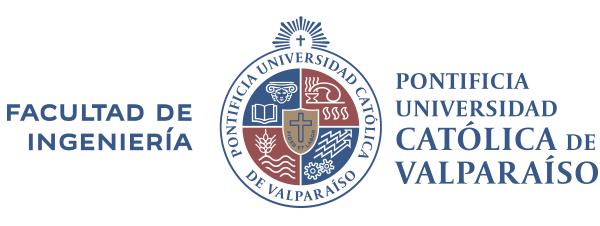School of Construction Engineering
Geotechnics
With more than 30 years of continuous work, this line of research has developed its work through the Geotechnical Group, which is made up of professors, researchers and students who develop teaching, research, innovation and links with the environment in the field of Geotechnics.
The areas of interest of the academics of this line of research cover a broad spectrum of research topics that include: classical Geotechnics, specifically foundations; stability of slopes in soils and rocks, containment structures for soils and rocks, soil structure interaction, innovation in soil compaction control and flexible slope stabilization systems. In addition, environmental and mining Geotechnics are included, where there is extensive experience in issues associated with design, and innovations in the geotechnical quality control of urban, industrial and massive mining waste deposits.
Also marine Geotechnics, where work has been done on characterization of the seabed, in addition to applications of Chilean soil in wastewater treatment, together with mitigation and monitoring of wind erosion in soils and waste. Another innovative theme in this line is the joint research with the University of Cantabria, of flexible slope stabilization systems, which has been published several times in ISI journals that report on the development of design methodologies, laboratory experimentation and in situ, prototype development, patenting, manufacturing and large-scale testing of wire network systems, cable networks and dynamic screens against falling rocks.
The main lines of research are developed in the fields of:
- Classic Geotechnics
- Environmental Geotechnics
- Mining Geotechnics
- Penetration tests
- Development of flexible slope stabilization systems
Hydraulic Engineering and Environment
Its purpose is to develop a diversified research that includes the sub-lines modeling of applied hydrological and hydraulic processes, urban systems of sustainable drainage (SUDS), non-conventional renewable energies (NCRE) and study of the impact and management of solid waste.
Modeling of applied hydrological and hydraulic processes
It focuses on the development and application of ad hoc mathematical models for each type and use of hydraulic structures, from the hydraulic, hydrological and environmental point of view, depending on the productive context in which it is used.
Urban sustainable drainage systems (USDS)
The USDS have two main approaches: a) to diminish the maximum flows of superficial runoff through the increase of the infiltration capacity of the pavements, or the damping of the flood hydrograph by means of the momentary accumulation of the runoff waters; b) improve the quality of runoff water by in situ treatment, using filtration or biodegradation systems.
Non-conventional renewable energies
It is mainly focused on the transformation of the waves' natural energy into electrical energy and mechanical energy, the latter designed to supply the necessary energy for the production of seawater, purified by desalination by reverse osmosis, for the various uses of the resource.
Study of the impact and management of solid waste
This line studies the disposal of solid waste, its impact on the environment, and the analysis of the way in which these impacts are produced, together with the development of new methodologies to mitigate or eliminate these impacts.
Structures and Materials
Research area that has two clearly defined lines:
Structures: Design, construction and maintenance of tunnels and bridges of long spans - projects of restoration and rehabilitation of buildings with heritage value.
Materials Engineering: Recently created line within the School of Construction Engineering, which arises from the development of a project at national level (FONDECYT, 11110365), and in particular is subscribed within the area of materials mechanics , and especially in relation to mechanical engineering (Engineering Mechanics) and structural mechanics (Structural Mechanics).
This area of research is developing both the mechanical characterization of materials and the mathematical modeling of the behavior/performance of materials, against different load configurations, paying special attention to new materials developed for engineering and their possible applications within civil and structural engineering.
